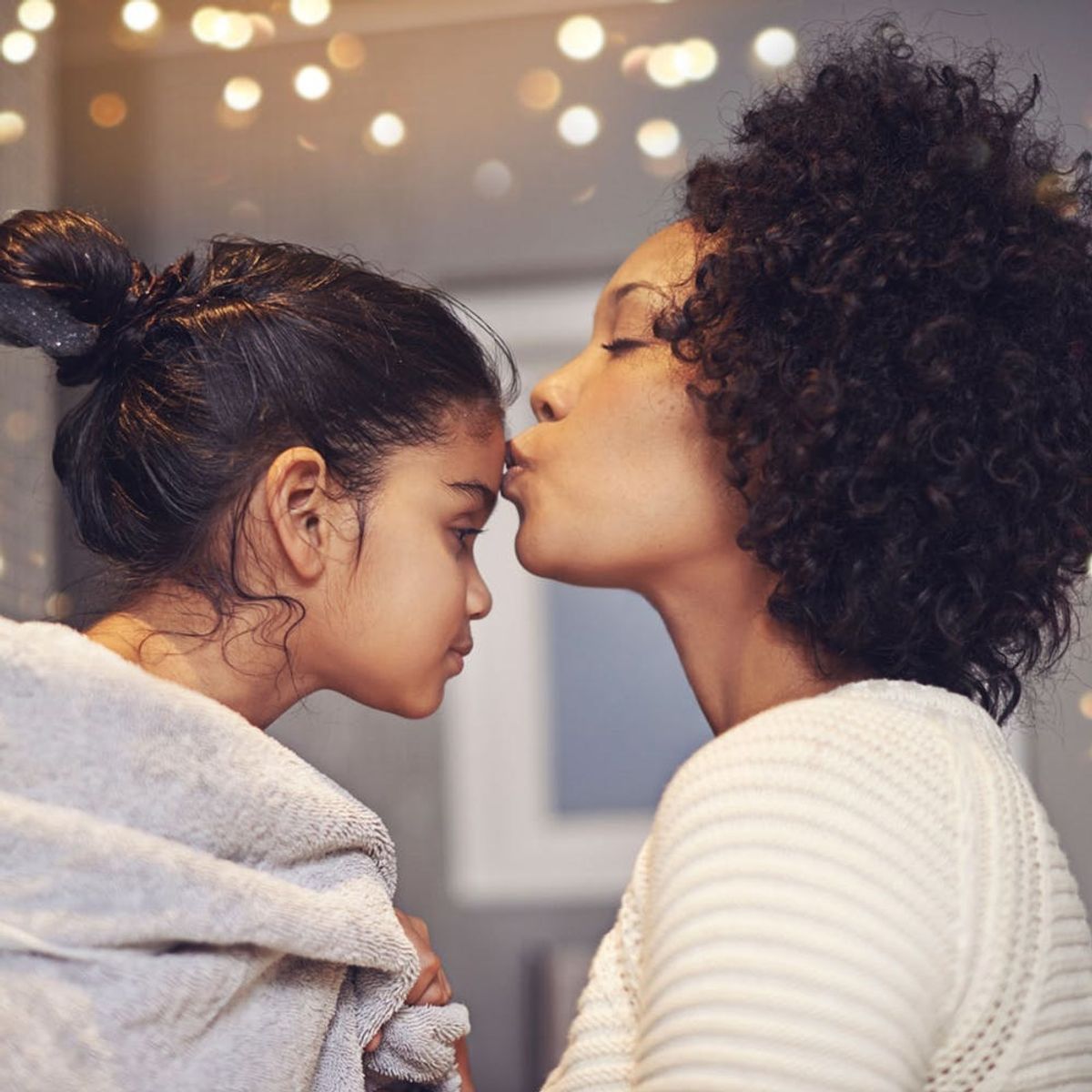Expert Tips for Raising a Body-Positive Kid

As adults with the best smartphones money can buy, we have constant access to great body-positive content — everything from fitness books to powerful blogs. And since we now know that body shaming makes you sick, we’re more in tune than ever with our own body-related feelings. But when it comes to our kids, it can be a little trickier, especially when they’re surrounded by media that distinguishes between “good” and “bad” body types. It’s a challenging subject, but one that’s super important to be talking about, so we asked parenting expert Dr. Rosina McAlpine to weigh in.
Rosina says it’s important to understand that no matter how young your little one is, they’re picking up messages about bodies constantly. “Our kids are always learning. The question is what are they learning, and from whom? Is it helpful or harmful to their physical and mental wellbeing?” she says. “As parents, if we proactively teach our kids about body positivity — what body positivity means to us personally and to our family — then we know what our children are learning. In other words, don’t leave it to strangers, peers, the Internet or to chance about what your child is learning about body positivity.”
But the specifics of teaching body positivity to our kids can seem confusing and a little daunting, to say the least. So Rosina is offering us these three important tips.
1. Make it a family affair. Rosina suggests doing positive things that make you and your kids feel healthy. “Make learning about body positivity a normal part of family life, and include the kids. When you’re shopping, talk about the healthy choices you’re making on fresh fruit, veggies and protein sources,” she tells us. “Exercise as a family with walks on the beach and down to the local park, proactively participate in your children’s team sports, do stretches together in the lounge room, join a gym together as a family. Whatever your family budget will allow.”
2. Lead by example. “Children are always watching their parents and seeing them as role models, especially when they are young, so what you say to yourself is very important. In one of the families I worked with, a mother was concerned about her teen daughter’s body image and negative self talk. But her daughter was at a healthy weight. Upon reflection, the mother realized her child had seen her stand in front of the mirror, saying how ‘fat’ she was and how ‘nothing looked good’ on her.” Avoid this kind of negative self talk at all costs — for your kids’ sake AND your own!
3. Talk it out. If you find your son or daughter saying negative things about their body, don’t avoid the subject. It’s an opportunity to talk out how they’re feeling and teach some body positivity in the process. “First, listen, listen, listen and validate feelings by nodding and saying short confirmations, like ‘I see you’re upset,’ (or) ‘I understand how you feel.’ Don’t try and fix it or contradict what they’re saying, even if it seems like what your child is saying isn’t true to you — it may be true for them. Try not to talk, except to ask more questions and get a better understanding of the issues,” Rosina says. She suggests asking questions like, “When you say ‘I’m fat’ or ‘ugly,’ how does that make you feel?” or, “What could you say to yourself that would be more positive and help you manage better?”
Bottom line: Pay attention and listen to what your kids are saying and thinking about themselves, and be a role model for the kind of body positivity you want them to have too.
How are you learning to be a body-positive parent? Tweet us your thoughts @BritandCo!
(Photos via Getty)


















